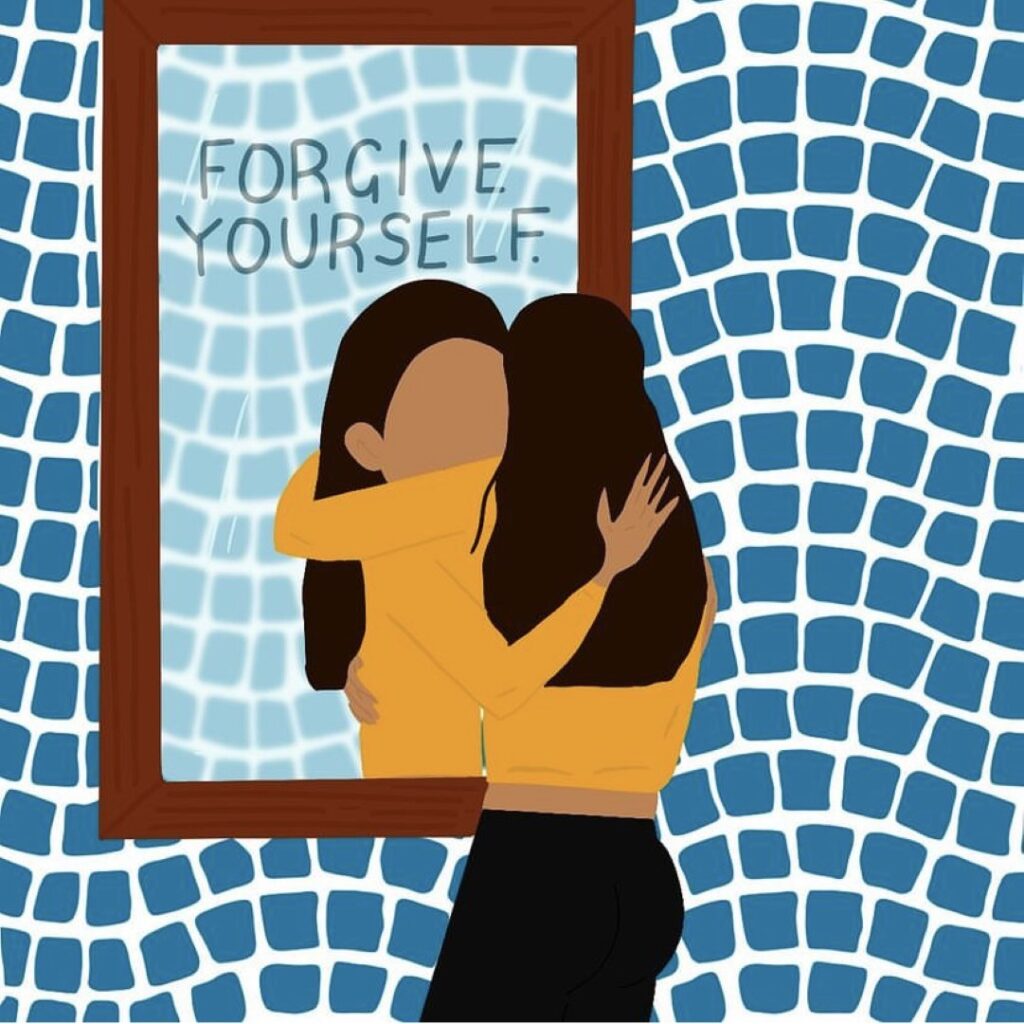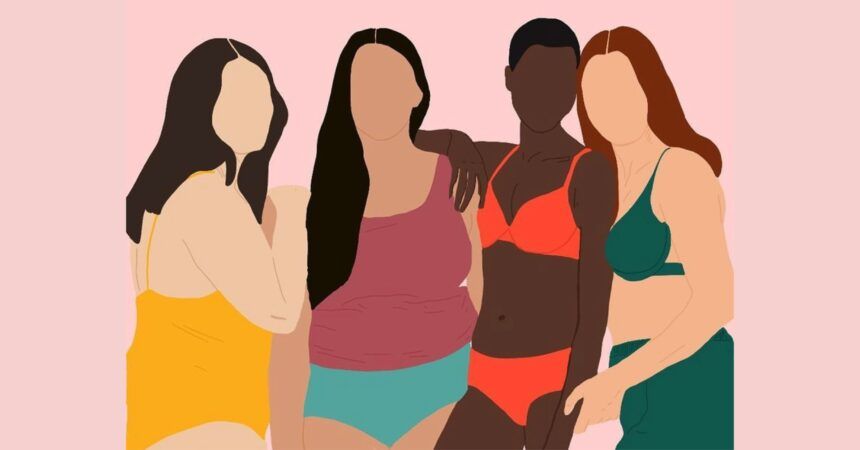As a 22-year-old girl, hailing from New Delhi, the melting pot of many cultures, ethnicities, languages, and ideologies, something that has been consistently relatable in my conversations with women my age is the issue of body image. We joke, we laugh, we share trauma, and we telepathically console each other through facial expressions only a fellow afflicted would understand. While the issue does unite women across intersections and makes for a great bonding topic, I wish it weren’t as common as it is in the present day and age.
This issue pervades the lives of women in the current generation like wildfire, ready to destroy every last shred of self-worth and self-esteem. The worst part is it does not have a specific origin or consequence that can be taken care of. It’s everywhere and affects every sphere of life. From momentary stress when a dress starts becoming too tight to wear to catastrophic consequences such as eating disorders and self-harm, body image issues can make for a bad year or a dysfunctional life altogether.

“I swear my body image issues began with my salon lady’s taunts. She has to poke and prod at every angle of my body and suggest a solution to whiten, brighten, or tighten it,” grumbled a friend about the largely unmentioned harbingers of toxic beauty standards; the beauty parlor business runners. “I think my body image issues began with my mother’s chides about my weight, she’s always been so controlling about that,” recalled another. “Man, how do I get a body like her? Everything in my life will fall into place if I just looked like her,” whined a friend while pointing at an edited and filtered picture of an Instagram influencer.
Every other person will have a different story about how her body insecurities began, but the most common one I have heard till date is, “it was when a friend commented on my appearance in school, it made me feel bad and all of a sudden very conscious of how I looked.” Now this is an observation that has also been confirmed by research, which states that body image issues among young women are more influenced by peers than by TV.
Body image, the belief about one’s own appearance, or how one views their body, is an ever changing process. Throughout the timeline of a woman’s existence, she has multiple perceptions about her body. Some days she’d consider herself worthy of being on the cover of Femina and other days, she’s dissatisfied with every picture of hers. This ever changing perception can be estimated by the fact that it changes multiple times over a single menstrual cycle. When a woman’s body is already shapeshifting biologically, various other social, cultural, psychological, spiritual, familial, and global forces simply add to the negativity with their restrictive and impossibly perfect beauty standards that women are expected to attain.
As someone who has also battled with a mild yet disruptive form of body image issues, the topic has been quite close and personal to me. From being conscious in my choice of words about others’ appearances to organizing a social media campaign on body positivity, I try to work towards body positivity and neutrality in my own little ways. Being a part of a social entrepreneurship club in college, I got a chance to initiate and build a project catering to sex education. As a part of that project, my team and I held a month long body positivity campaign, titled #BeautyBeyondBias, targeting men and women aged 16-25 years. Apart from disseminating knowledge and sensitizing masses, we received quite a sobering response from our social media followers when we provided a space for them to anonymously confess anything related to their body image issues.
Snippets of some of those confessions read:
“I’ve been fat shamed since before I knew what fat shaming was.”
“I started working out but this was not bringing any difference to me as I was doing all this under pressure.”
“They poked me in places on my body that were so-called ‘bouncy’ and I just couldn’t stop them.”
Although we tried our best to provide positive responses to their confessions and encourage them to feel comfortable in their own skin, we were also acutely aware of the fact that these issues will not be eradicated overnight, nor will validation from strangers on the internet remedy them.
We appreciate celebrities who get real on social media with their stretch marks and cellulite, we applaud brands who hire plus-size models for their clothing lines, but how much does that really help? As one of my friends put it, “I don’t think that’s really solving the problem. Either they show an extremely skinny person or a plus size model. Nowhere do I see a representation of something similar to my body type which leads me to dislike what I am wearing because of course it doesn’t look the same way it looks on them.”
At the end of the day, real change will not be possible without real conversations. Unless we all band together to spread the message of acceptance and positivity, change will be slow and slight. It’s pretty simple. Kindness costs nothing and unsolicited commentary on someone’s appearance can incur a heavy price.











